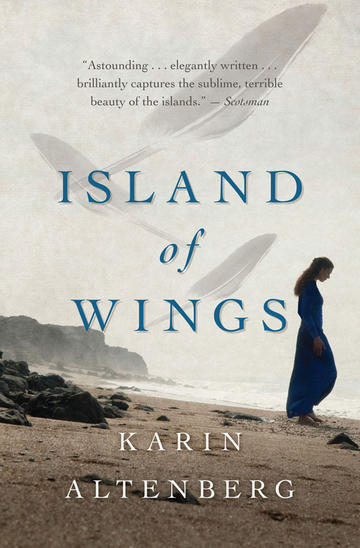 Enlarge Cover
Enlarge Cover
Longlisted for the Orange Prize for Fiction
July, 1830. On the ten-hour sail west from the Hebrides to the islands of St. Kilda, everything lies ahead for Lizzie and Neil McKenzie. Neil is to become the minister to the small community of islanders, and Lizzie, his new wife, is pregnant with their first child. As the two adjust to life on an exposed archipelago on the edge of civilization, where the natives live in squalor and subsist on a diet of seabirds, and babies perish mysteriously in their first week, their marriage -- and their sanity -- is threatened. Is Lizzie a wilful temptress drawing him away from his faith? Is Neil’s zealous Christianity unhinging into madness? And who, or what, is haunting the moors and cliff-tops?
Exquisitely written and profoundly moving, Island of Wings is a richly imagined novel about two people struggling to keep their love, and their family, alive in a place of terrible hardship and tumultuous beauty.
- Long-listed, Orange Prize for Fiction
- Short-listed, Saltire Society Scottish First Book of the Year Award
. . . poignant and affecting . . . an incredibly accomplished debut novel.
...deeply entrenched in historical detail...a moving portrait...the story shows the limits of love and devotion -- in people and in faith.
Remarkable for the shimmering quality of her prose as for her recreation of the brutal realities and grinding poverty of life on the isolated archipelago of St. Kilda in the 1830s . . . Island of Wings brilliantly captures the sublime, terrible beauty of the islands . . . a superb book.
Altenberg has a wonderful eye for detail and a gift for creating a strong sense of place ... [she] has created a compelling novel with conflicted characters, set against the fascinating -- and often frightening -- backdrop of a barren Scottish archipelago.
"Island of Wings is an impressive, thoughtful novel."
...hauntingly beautiful...
. . . [a] powerfully imagined debut . . .
With Island of Wings, Altenberg adds her name -- deservedly -- to the stellar cast of Scandinavian writers fast making a name for themselves on the literary scene.
Compelling . . . Altenberg has found a powerful storyline, limpid prose style, and moral force that is all her own.
. . . stunning: a historical document turned into lyrical fiction.


